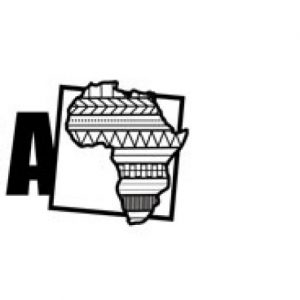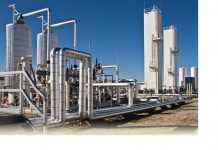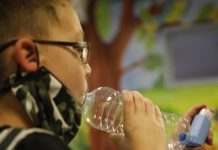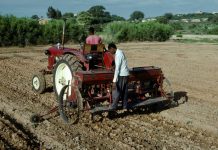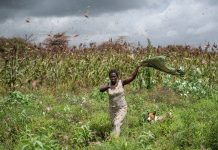Nico Greeff, a grape farmer in Vredendal, says he will make no profit this season. He has employed 30 fewer seasonal workers and, depending on rainfall this winter, may have to retrench permanent staff.
Greeff is Chairman of the Olifants River Table Grape Producers’ Association and a director of the South African Table Grape Board. His farm, Begin Boerdery, is one of the suppliers for Namaqua Wines.
“We will produce 400 tons less grapes than the usual 1,000 tons this season. All our grape varieties are down by 40%, our currants are down 70%, and together with the reduction in raisins this means a total loss of R5 million for the farm,” said Greeff. “We will make no profit this season.”
“One of my neighbouring farms lost their whole crop of table grapes. They didn’t pack one box,” said Greeff. “Another neighbouring farm lost about 70% of their table grapes.”
According to the Western Cape Department of Agriculture grape farms are one of the biggest sources of agricultural employment in the Vredendal/Clanwilliam area.
Greeff said he had employed “around 30 fewer seasonal workers” this season. He said that while he has not laid off any permanent staff at the farm, “it might be a consideration, depending on how much rainfall we get this season.”
“I grew up on the farm. I’m 60 years old now. I don’t remember a year where the Olifants River didn’t flow. It’s standing still. Farmers are now putting in pumps to get water, but it is very salty.”
Greeff said that Citrusdal, which lies 130 kilometres up the Olifants River and is a centre of citrus farming in the Western Cape, would not be as hard hit by the drought as Vredendal. “Citrusdal has better groundwater, that is not as salty as ours, and it also has better soil quality.”
Alwyn van der Merwe, a farmer in Citrusdal and chairperson of the Citrusdal Agriculture Association, said that while water conditions were a bit better for farms higher up the Olifants River, farmers in Citrusdal still had to be much more selective about their planting than before.
According to Agri Western Cape, “hundreds of hectares of citrus trees have been cut back, and hundreds of hectares of orchards have been pulled out in an effort to save the little water allocated to producers.”
A 2016 report by the Department of Agriculture, Forestry and Fisheries (DAFF) Directorate of Statistics and Economic Analysis states that 286,004 hectares of land in the Western Cape is used for orchards. This is more than in any other province in South Africa.
Jeanne Boshoff of Agri Western Cape told GroundUp that fewer producing hectares meant smaller yields and less food. Indications were that the provincial deciduous fruit harvest this summer would be 20% smaller.
“This means less seasonal workers will be employed, and for a shorter period of time,” she said.
Van Der Merwe said that while many seasonal workers might not get employment for the season, “the Rooibos farming sector should absorb some seasonal workers as Rooibos grows well in dry conditions”.
Regarding his own employees, Van Der Merwe said he only had permanent staff and would do everything he could to keep them employed.
Elaine Fredericks, 24, is a seasonal farm worker who has worked in Ceres since 2012. “I help my dad, who also works on the farm, as he is the sole breadwinner in the house.” She said two of her fellow seasonal farm workers had not yet managed to secure employment this season.
Bianca Capazorio, spokesperson for the Western Cape’s Ministry of Economic Opportunities, said the department was working to connect farm workers at risk of losing their jobs with the Department of Social Development, “to ensure that they are able to access social assistance.”
Investment in the dam
Capazorio said: “We have so far contributed R5 million towards the augmentation of water in the Matzikama municipality (of which Vredendal is a part) for the agricultural sector through the drilling of boreholes.”
Greeff said farmers in Citrusdal had first pick of the water from the Olifants River before it flowed down to Vredendal, and this made it even tougher for Vredendal farmers.
“We have invested Western Cape Government funds in fixing leaks in the Clanwilliam Dam canals to ensure that water is able to reach farms downstream,” said Capazorio. The dam lies on the Olifants River between Citrusdal and Vredendal.
“Conservation agriculture has been implemented at farms across the province, enabling farmers to achieve far greater yields with lower water usage,” said Capazorio.
Conservation agriculture involves diversifying crops and planting crops that use less water, such as berries, cherries and pomegranates.
According to export values cited in DAFF 2016/17 Economic Review of South African Agriculture, citrus fruit (R17 billion) and wine (R8.7 billion) are two of the most valuable agricultural exports in South Africa. Together they represent over a quarter of the total estimated agricultural exports for 2016/17 (R97 billion).

